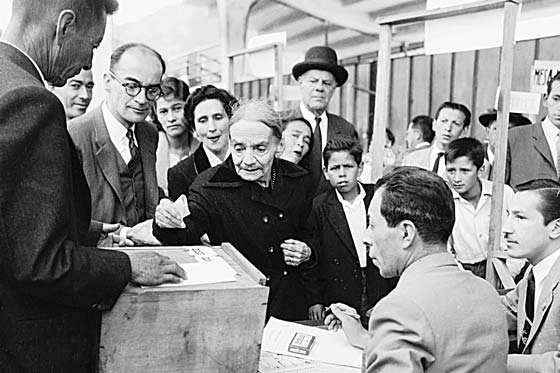On October 17, Mexico celebrates the 63rd anniversary of full citizenship of women, a key event in Mexico’s democratic life in that it gave all Mexicans equal political participation in the nation’s institutional life.
Women have played a fundamental role in Mexico’s independence, reform and revolution. However, they did not have a right to political participation.
Their struggle began during the Mexican Revolution, with the starting point being the First Feminist Congress of the Yucatan in 1916.
At that historic meeting, the women gathered there demanded equality, education and citizenship in order to build –together with the men in a responsible manner—a new Mexican society underpinned by progress, democracy, justice and equality.
Yucatan was the first state to recognize women’s right to vote in 1923. Three women were elected as deputies to the state legislature: Elvia Carrillo Puerto, Beatriz Peniche de Ponce and Raquel Dzib. Rosa Torre G. was elected as city councilmember of Merida. However, they were forced to resign their positions.

In 1937, President Lázaro Cárdenas promoted a reform granting full political rights to women that was passed by both the Chamber of Deputies and the Senate, and by most of the state legislatures. However, it was never enacted or published in the official journal.
Later, in 1947, President Miguel Alemán proposed a constitutional amendment that would let women exercise their right to participate in municipal elections.
Upon assuming the presidency, Adolfo Ruíz Cortines fulfilled his campaign promise and sent an initiative to reform Constitutional Articles 34 and 115 that promoted universal suffrage for women to the Chamber of Deputies.
Finally, on October 17, 1953, the decree recognizing the full citizenship of Mexican women was published in the Official Journal.
Since then, women’s fight to participate in decisions involving their families and nation has continued. They have demonstrated their ability and their right to influence the country’s social, economic and cultural policy decisions.
They continue to do so today, motivated by the historical electoral political reform included in our Constitution at the initiative of President Enrique Peña Nieto, which states in Article 41 the obligation of political parties to establish rules that ensure gender parity for their candidates for the federal and local legislations.
This parity principle is the culmination of the struggle of Mexican women for the constitutional recognition of their right to popular representation and decision-making. It is not however the end, but rather the beginning, of a new cycle for both women and men to continue rules and mechanisms to ensure the full exercise of their rights on equal terms.
